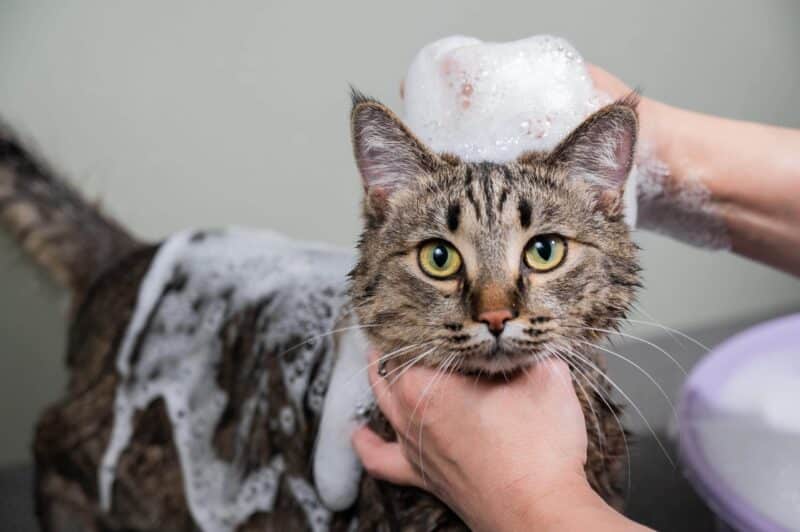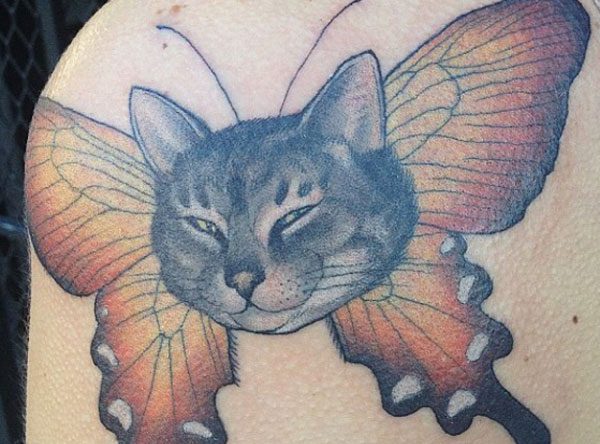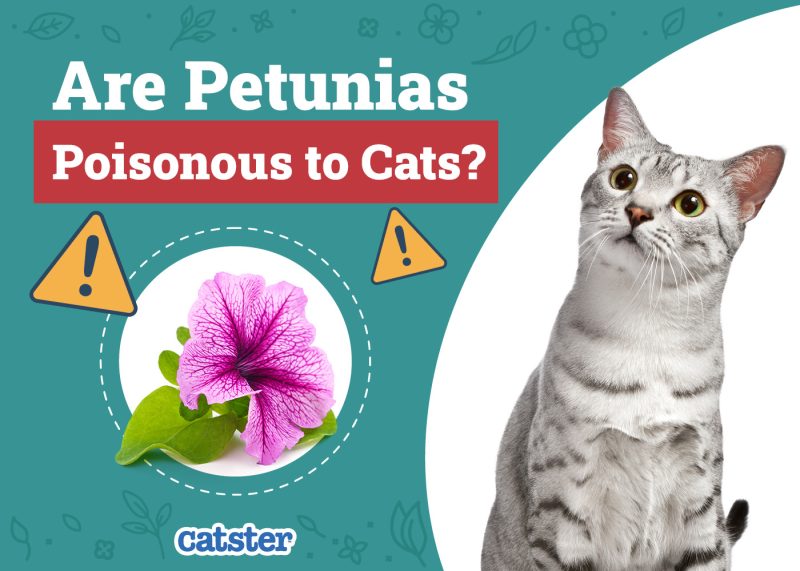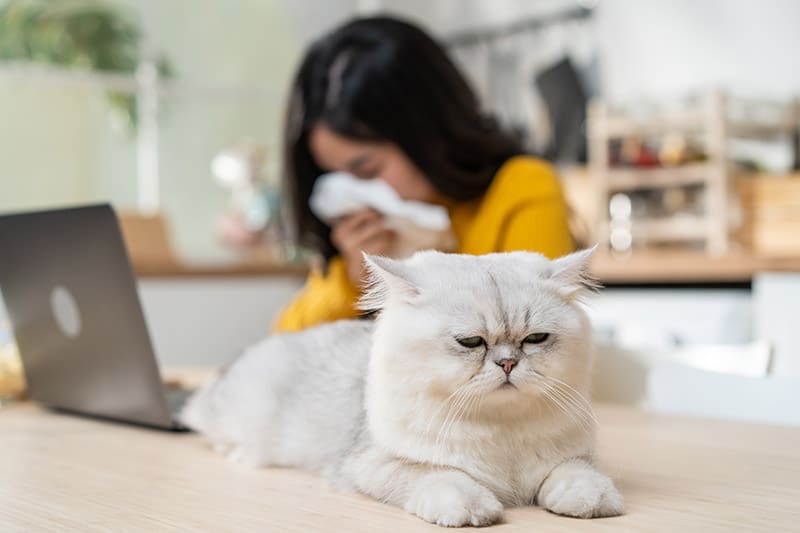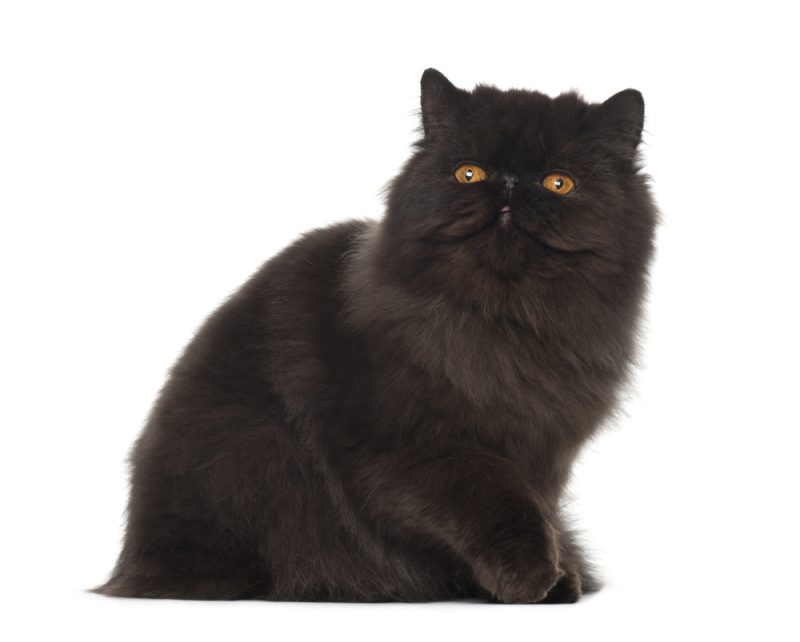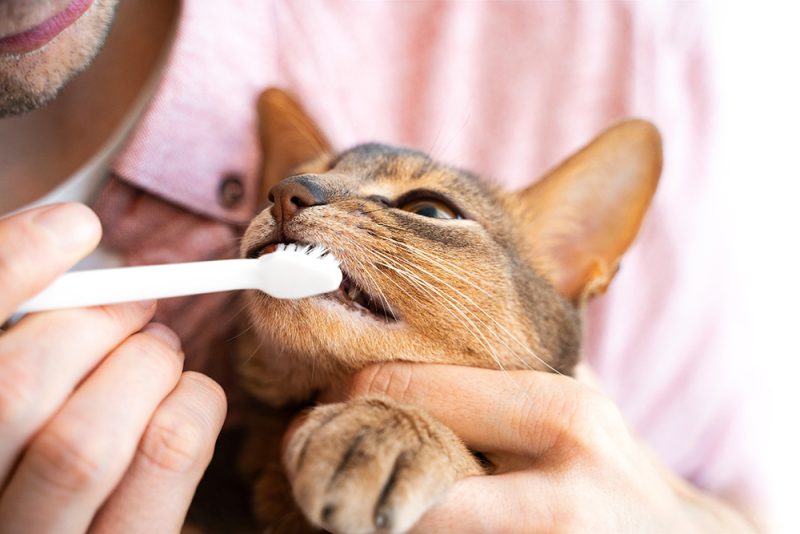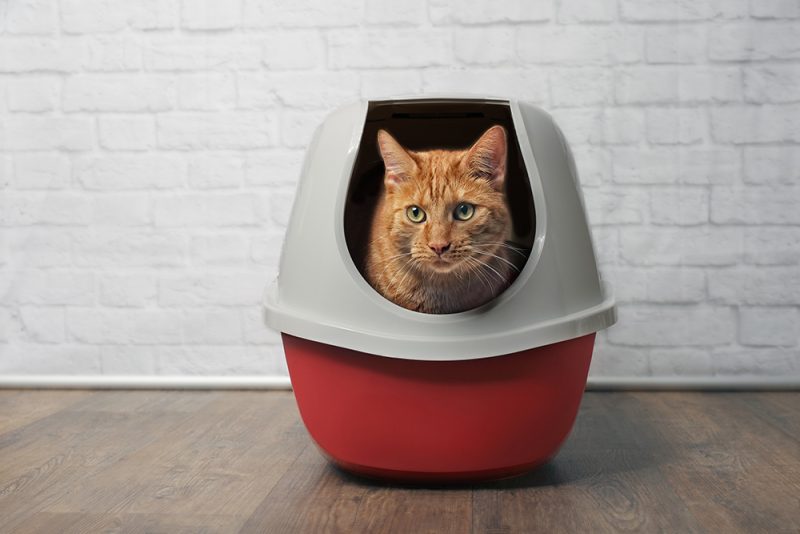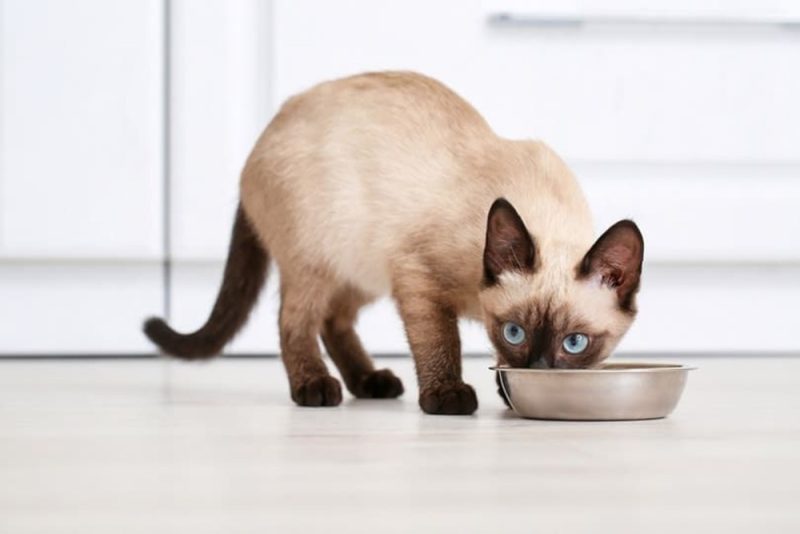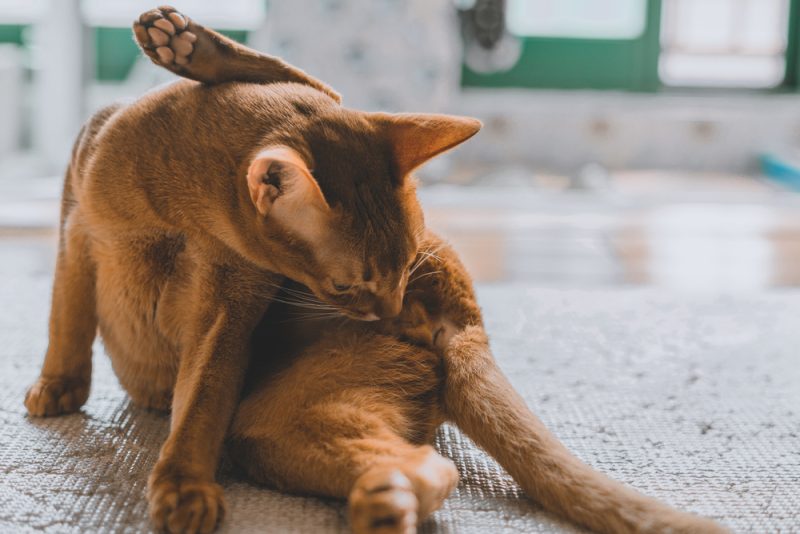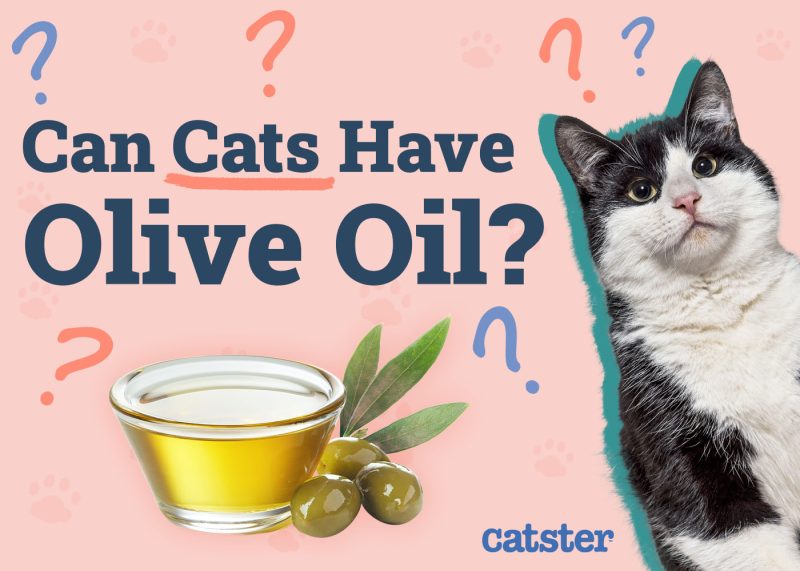In this article
The majority of healthy cats don’t need to be bathed because they’re perfectly capable of keeping themselves clean, thank you very much. That said, some circumstances require bathing. Hairless cats, for example, need regular bathing, and cats with skin conditions or medical problems that prevent them from grooming themselves properly may need to be bathed depending on what a vet says.
Unfortunately, some ingredients are toxic to cats, so it’s essential to rule out the inclusion of these ingredients in the product you choose for bathing your cat. Read on to find out what to avoid.

Which Ingredients Are Bad for Cats?
There are quite a few ingredients to avoid when shopping for cat shampoo. Using products containing these ingredients could result in a range of issues, including irritation, allergic reactions, dryness, flakiness, and sore skin—all of which can exacerbate underlying skin issues. If they get into the eyes, this causes pain and irritation.
Some ingredients, like phenol, are toxic to cats and can cause some serious consequences, including liver and kidney damage and neurological issues. Unfortunately, phenol can also be fatal to cats, as can other toxic ingredients.1 This is why it’s so essential to check the label before you use any new products on your cat.
- Parabens
- Pyrethroids
- Phenol
- Pyrethrins
- Permethrin
- Artificial fragrances
- Artificial colors
- Dyes
- Sulfates
- Formaldehyde
- Alcohol
- Mineral oil
- Phthalates
- Sodium lauryl
- Camphor
- Glycol
- D-Limonene and Linalool
- Polysorbates
- Methylchloroisothiazolinone & other isothiazolinones
- Ethyl acetate
- Stearates
- Benzaldehyde
- Sodium benzoate
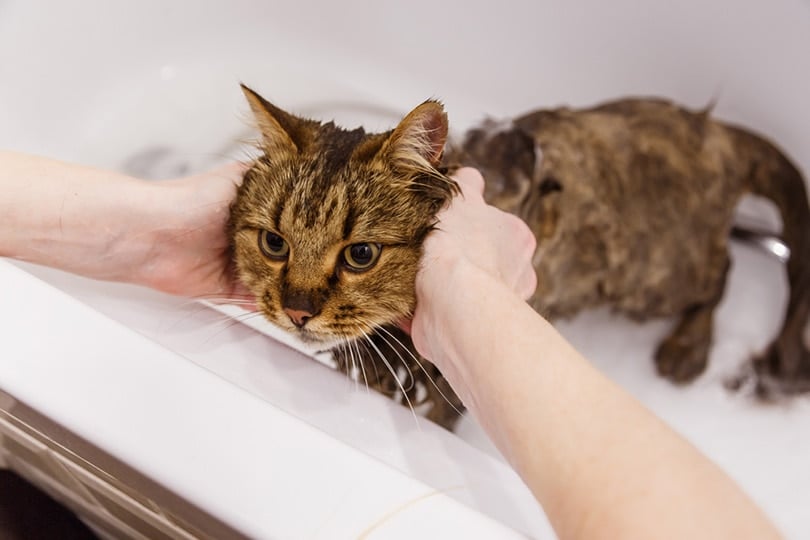
What About Essential Oils?
Some essential oils that are toxic to cats—like tea tree oil—are commonly used in cat shampoos, but in very diluted amounts. As long as it’s a product specially formulated for use on cats, the concentration should be very low and not considered toxic, but we strongly recommend checking with a vet first. This goes for any new shampoo you use on your cat.
If you need to speak with a vet but can't get to one, head over to PangoVet. It's an online service where you can talk to a vet online and get the advice you need for your pet — all at an affordable price!

With the exception of vet–approved products formulated specifically for cats with diluted concentrations, you should never apply essential oils on your cat’s skin. Topical application or oral ingestion can be fatal.
Can I Use Human Shampoo?
No, human shampoo is unsafe for cats and should never be used to bathe them. For one thing, a human’s pH balance is different from that of a cat, and human shampoos are formulated to be more acidic than a pet shampoo would be. A cat also has fewer layers of skin than we do, so they’re more sensitive. Using a human shampoo would interfere with your cat’s pH balance, drying out the skin.
In addition, many of the ingredients contained in human shampoos (including some listed above) aren’t safe for cats. Sulfate sodium salts, parabens, and artificial fragrances and colors are some of the ingredients commonly found in human shampoos, all of which can potentially irritate a cat’s skin.
Can I Use Dog Shampoo?
No. Some ingredients used in dog shampoos are safe for dogs, but not for cats. To give you an example, permethrin—an ingredient used in flea control products for dogs—is toxic to cats, as are several essential oils. Therefore, do not use human or dog shampoos on cats. The only exceptions are shampoos formulated for both cats and dogs and that are clearly marked as such.
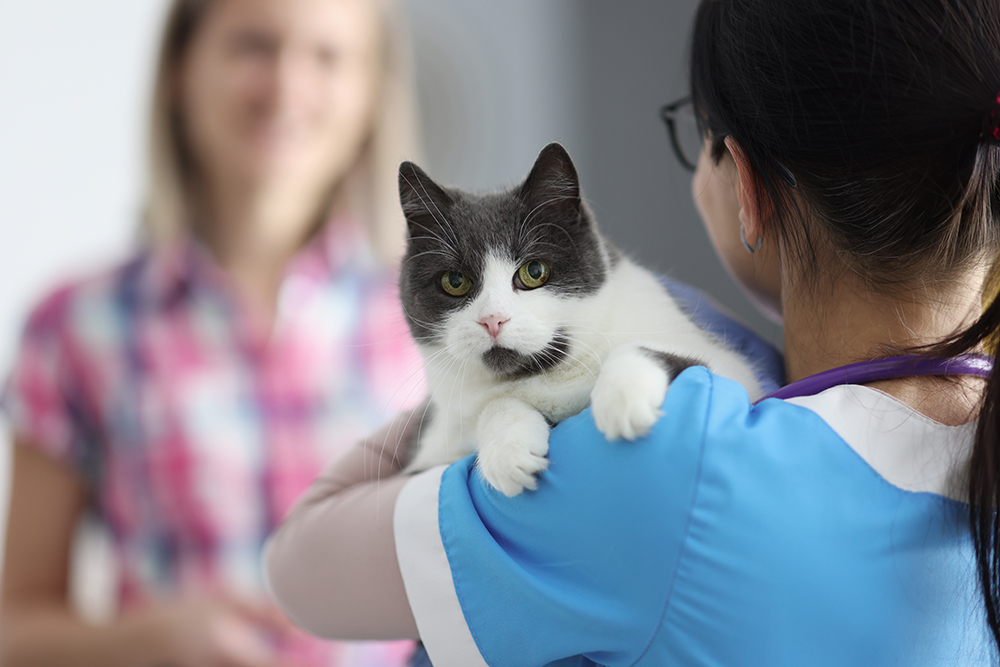
How to Pick a Safe Shampoo for Your Cat
Here are some factors to take into consideration when hunting for the right shampoo for your moggy:
- Ask a vet for recommendations.
- Keep a list of harmful ingredients handy to check labels.
- Check that the product is formulated specifically for cats.
- Look for something gentle that doesn’t strip the natural oils away.
- Look for easy-rinse shampoos without sulfates.
- Even products labeled “natural” or “organic” may contain ingredients harmful to cats.
- Avoid brands that do not list the ingredients.
There are lots of pet shampoos to choose from, but some are much better than others. We love these two options created by Hepper, each offering something uniquely different. The Colloidal Oatmeal Pet Shampoo is an excellent choice for cats who require the occasional full bath, and the Waterless No-Rinse Dry Shampoo is perfect for felines that prefer to stay dry! Both are made with all-natural ingredients and pH-balanced formulas designed to gently lift away dirt and debris, leaving your cat's coat and skin soft and hydrated. Find out which is right for you in the table below.
| Image | Product | Details | |
|---|---|---|---|
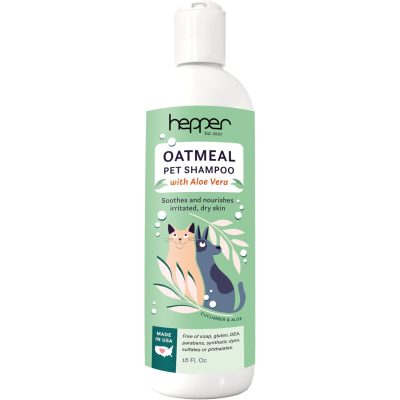
|
Hepper Colloidal Oatmeal Pet Shampoo |
|
Check Price |
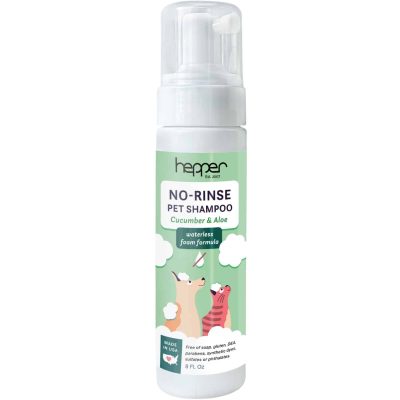
|
Hepper Waterless No Rinse Pet Shampoo |
|
Check Price |

Final Thoughts
To reiterate, most cats don’t need to be bathed, but if yours does, it’s essential to do your research and carefully check what goes into the shampoo you use on them.
Not every brand lists its ingredients—it’s “generally” not required in the case of pet shampoos according to the American Pet Products Association. We strongly recommend avoiding such products and sticking to vet-recommended, reputable brands that list their ingredients.
Featured Image Credit: Reshetnikov_art, Shutterstock
